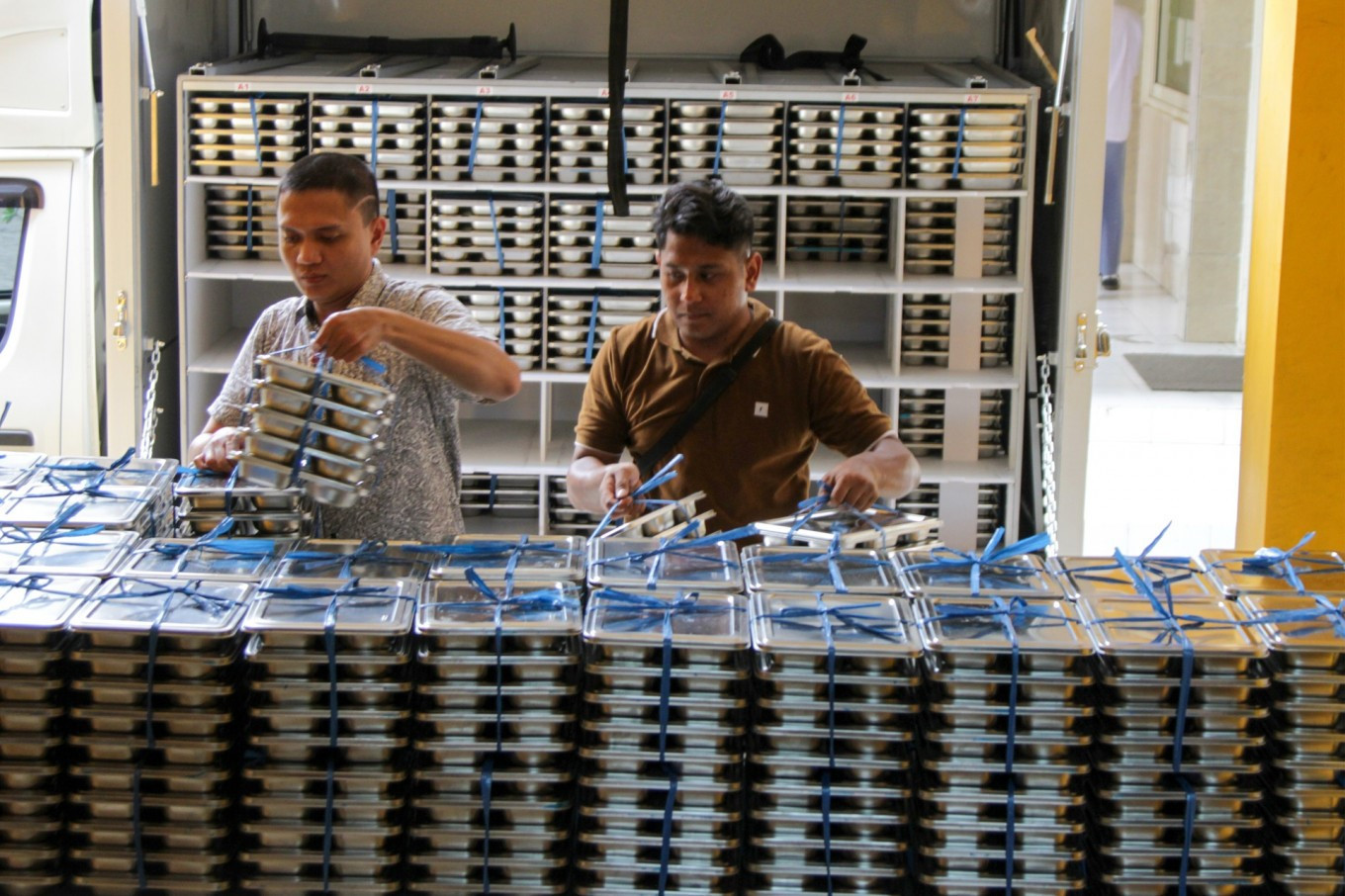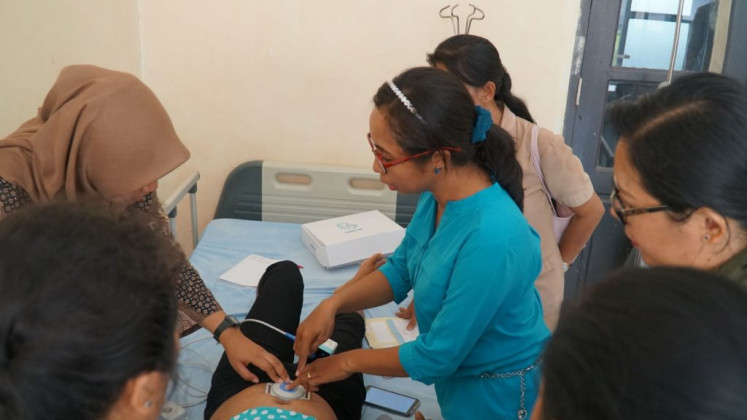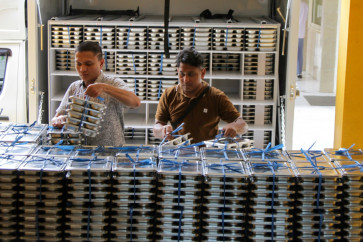Popular Reads
Top Results
Can't find what you're looking for?
View all search resultsPopular Reads
Top Results
Can't find what you're looking for?
View all search resultsAnalysis: Free nutritious meals program fuels budget swell, sparks budget deficit
Change text size
Gift Premium Articles
to Anyone
T
he free nutritious meals (MBG) program, a cornerstone initiative of President Prabowo Subianto’s administration, is potentially leading to a budget swell. The potential increase is driven by the plan to expand the program’s beneficiaries, creating a significant budgetary challenge for the government and a possible widening state budget deficit.
During a cabinet meeting evaluating his 100 days of administration, President Prabowo targeted that by end of this year, all children would receive free nutritious meals. He said the free meals program has reached 650,000 children since it was launched on Jan. 6. By April, he said, the program should reach 3 million children, then 6 million children by August and 15 million by September. By end of this year, all 82.9 million children should receive the free meals.
Consequently, the budget would expand from the Rp 71 trillion (US$4.36 billion) allocated in the 2025 state budget. According to National Nutrition Agency (BGN) head Dadan Hindayana, the existing budget of Rp 71 trillion is insufficient to cover all existing beneficiaries of the program. The current budget limits the program to 17.5 million beneficiaries until September 2025. To address this gap, the agency has proposed a substantial budget hike, requesting Rp 171 trillion, an increase of Rp 100 trillion from the original allocation.
In response, President Prabowo has reduced the budget for infrastructure development, including for the National Capital City (IKN) project, in order to accommodate other government priorities. The 2025 State Budget (APBN) allocates Rp 400.3 trillion for infrastructure, a Rp 23.1 trillion decrease from the Rp 423.4 trillion allocated back in 2024.
Furthermore, to support the free meals program, villages will contribute up to Rp 20 trillion, as announced by Villages and Regional Development Minister Yandri Susanto. Additionally, Home Minister Tito Karnavian confirmed that regional government funds ranging from Rp 2.3 trillion to Rp 2.5 trillion will be allocated to assist the program this year.
This request for supplementary funding has faced scrutiny amid a wave of budget increase requests from various government ministries. In December 2024, several ministries within the expanded Red and White Cabinet, formed by President Prabowo in October 2024 with 48 ministries (including 7 coordinating and 41 technical ministries), submitted proposals for increased budgetary allocations to support their departments.
Several economists believe that an increased demand for funding priority programs, including free nutritious meals, alongside rising budgetary needs across ministries and agencies, may lead to a larger state budget deficit in 2025. Imposing the burden of the state budget deficit will necessitate increased borrowing, leading to a significant rise in debt interest payments in 2025. This will create a vicious cycle, forcing the state budget to borrow further to service existing debt.



















